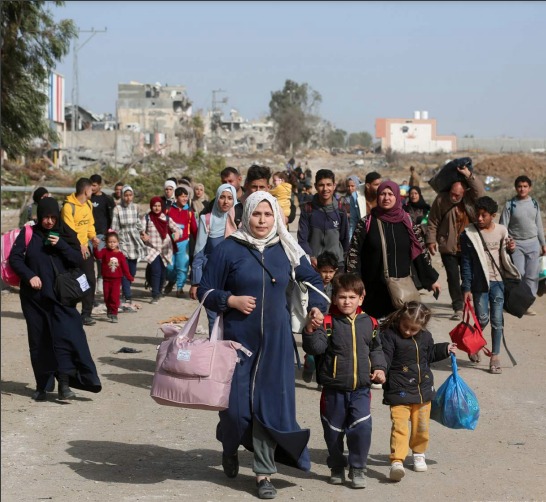18 Apr. 24
In the wake of escalating violence between Gaza and Israel since the October 7, 2023 attack by Gaza on Israel, a recent rapid assessment by UN Women underscores the devastating toll on civilians, particularly women and girls, in the occupied Palestinian territory.
The conflict, which has claimed over 3,785 Palestinian lives and left more than 12,500 injured, has also displaced over one million people – nearly half of Gaza’s population. The destruction of civilian infrastructure, with 5,262 buildings severely damaged or destroyed, has exacerbated an already dire humanitarian situation. Moreover, the violence is spilling over into neighboring areas, resulting in additional casualties in the West Bank, Syria, and Lebanon.
UN Women estimates that close to 493,000 women and girls have been displaced from their homes, while 1,487 men have lost their lives, leaving behind a surge of widows and over 900 new female-headed households. Tragically, 3,103 children have been orphaned due to this ongoing conflict.
The crisis has disproportionately affected women’s health and safety. With 50,000 pregnant women and 5,522 expected to deliver in the coming month, access to maternal healthcare and essential services is urgently needed. Even before the conflict, Gaza faced high unemployment rates, particularly among women, with significant levels of anxiety and depression reported among both men and women.
The displacement of women and girls exacerbates existing vulnerabilities rooted in gender discrimination. Laws assuming women under male guardianship increase risks of gender-based violence and food insecurity, leaving women more likely to live in substandard temporary shelters when displaced.
The situation is dire for those who survive the violence. More than one million women and girls lack access to basic necessities such as food, safe water, sanitation facilities, and sanitary products, leading to a rise in diseases amidst inhumane living conditions.
UN Women’s report emphasizes the urgent need for lifesaving inputs – water, sanitation, food, fuel, and healthcare – to support the survival and well-being of affected households. Equally critical is addressing the unique needs of women and girls, ensuring access to safe shelter, protection, and maternal health services.
As the conflict persists, it is clear that the impact extends far beyond the loss of life and physical destruction – it is a humanitarian crisis with a deeply gendered dimension. The international community must prioritize swift and comprehensive action to alleviate the suffering of women and girls in Gaza and ensure their rights and dignity are upheld amid this devastating conflict.




